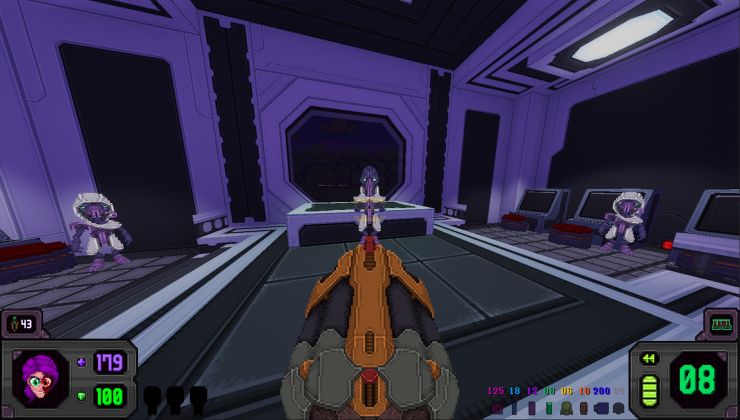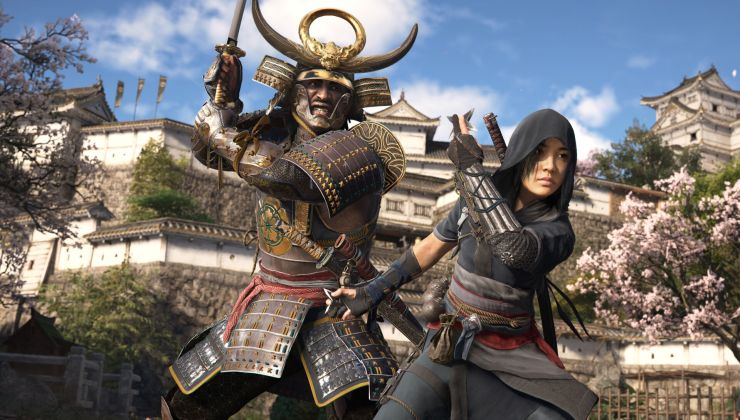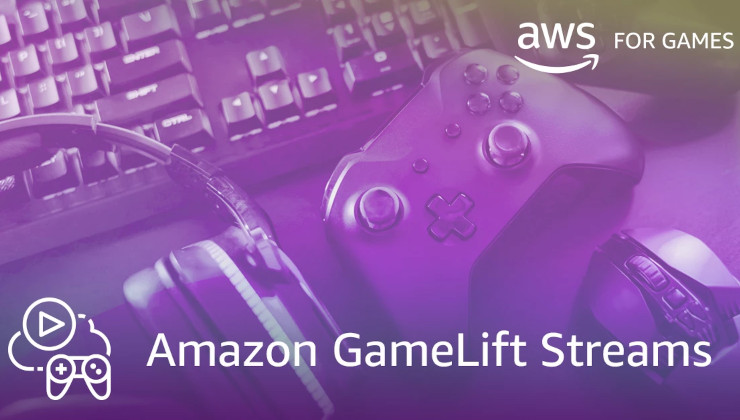Spec Ops: The Line from YAGER / 2K has been unexpectedly removed from Steam, as the store page is now delisted so it won't show up in searches and it can no longer be purchased.
It's not clear why it has been done, and no announcement has been made on it anywhere that I can see officially. So we're left to speculate for now. When this usually happens it's often some rights that expired that they don't wish to relicense or update the game to remove it like music, which Spec Ops: The Line had a fair few big names in so that's quite likely. Update 31/01/24: as I suspected, it's some licenses not getting renewed as per the statement sent to Kotaku notes - "Spec Ops: The Line will no longer be available on online storefronts, as several partnership licenses related to the game are expiring".

While the gameplay wasn't exactly all that special, but what many praised it for was the narrative as the developer tried to make it more meaningful than a lot of other shooters. For many it left a lasting impression so it's a shame if it will eventually be removed from other stores too.
For now at least you can still buy it from:
GOG (80% off until February 6th) - now delisted as of 31/01/24, 16:30 UTC
Humble Store (keys will likely run out) - Humble have now removed their offer as of 01/02/24.
+ Click to view long quoteHow does that work for films? Or rather: how can music licensing work for films with seemingly little to no hassle once a deal is struck, but is a gigantic and recurring pain for video games?This time-limited licensing is such bullshit. Basically building a self-destruct timer into the product.
Copyright, patents, etc. are generally misused nowadays. They were intended for individual creators to get compensation and credit for their work, not for corporations to hoard, exploit and fatten their portfolios.
Or, are movie industry execs stuck in neverending meetings about licensing this song for Apocalypse Now, or that bit of stock footage?
Clearly, something needs (re-)regulating here.
There are different kinds of music licenses. The most expensive one grants rights in perpetuity, which is typically the license purchased by television and movie studios. Or they might cut a deal with the artist (or more likely the record label) to pay a small royalty on every sale.
While video games are popular, they do not generate anywhere near the revenue of a top movie or television studio, so game studios tend to have less clout when negotiating music licensing deals
While I agree that should describe the world, I'm not sure it actually does. Whatever nice sounding rhetoric has been said, either now or at the time the laws were first being defined, benefits for publishers were a big, and perhaps the biggest, part of the mix from the very beginning.This time-limited licensing is such bullshit. Basically building a self-destruct timer into the product.
Copyright, patents, etc. are generally misused nowadays. They were intended for individual creators to get compensation and credit for their work, not for corporations to hoard, exploit and fatten their portfolios.
+ Click to view long quoteHow does that work for films? Or rather: how can music licensing work for films with seemingly little to no hassle once a deal is struck, but is a gigantic and recurring pain for video games?This time-limited licensing is such bullshit. Basically building a self-destruct timer into the product.
Copyright, patents, etc. are generally misused nowadays. They were intended for individual creators to get compensation and credit for their work, not for corporations to hoard, exploit and fatten their portfolios.
Or, are movie industry execs stuck in neverending meetings about licensing this song for Apocalypse Now, or that bit of stock footage?
Clearly, something needs (re-)regulating here.
There are different kinds of music licenses. The most expensive one grants rights in perpetuity, which is typically the license purchased by television and movie studios. Or they might cut a deal with the artist (or more likely the record label) to pay a small royalty on every sale.
While video games are popular, they do not generate anywhere near the revenue of a top movie or television studio, so game studios tend to have less clout when negotiating music licensing deals
I get that, but I do think there's also the component of video games having a serious problem with balancing out the ol' art-craft-business chestnut (even if I do understand where it may be coming from - there's a reason so many of the bigger film productions are co-financed the way they are, and, similarly there's a different set of reasons for why video games are not).
I mean, Saints Row gets licensed music in perpetuity, but Rockstar's The Biggest Thing Ever 4 doesn't? Uh-huh.
There I go with my "video games are art" spiel (even if low art, I should add since I used the examples I did). Games getting delisted for this particular reason just bothers me on a deep level.
Last edited by such on 30 Jan 2024 at 9:24 pm UTC
There are different kinds of music licenses. The most expensive one grants rights in perpetuity, which is typically the license purchased by television and movie studios. Or they might cut a deal with the artist (or more likely the record label) to pay a small royalty on every sale.
While video games are popular, they do not generate anywhere near the revenue of a top movie or television studio, so game studios tend to have less clout when negotiating music licensing deals
Games publishers absolutely have the revenue to buy perpetual licences. But whereas film and TV studios want to be able to license their products for re-distribution and syndication - which is much easier to do with clear upstream licensing - game publishers would much rather not have sales of their old titles competing with sales of their new titles. So films/TV get the perpetual licence and games get the marginally cheaper temporary licence.
“Spec Ops: The Line will no longer be available on online storefronts, as several partnership licenses related to the game are expiring,” explained 2K in a statement sent over to Kotaku. No specific licenses were namedhttps://kotaku.com/spec-ops-the-line-steam-delisted-removed-2k-licenses-1851209947
After reading about it, it became clear why the game lacked a bit of polish to make it a true AAA title. It was still worth playing, IMHO. Is the closest thing Linuxers got to Gears of War, but with a more realistic setting.
morality and ethics of war right in the middle
Probably why its been removed. Given current global events.
Probably why its been removed. Given current global events.No, it's probably music. IIRC it uses a few band songs, like Mogwai's Glasgow Mega-Snake, which was quite memorable for me.
There's small possibility it gets added back to the store. That happened with DuckTales Remastered. However DuckTales as brand is stronger, so the chance for Spec Ops: The Line are quite slim.
I do have one extra key in Humble if somebody wants it. Can't guarantee that it works as AFAIK available keys are tied to sales on Steam. So remember to activate it right away.
There's small possibility it gets added back to the store. That happened with DuckTales Remastered. However DuckTales as brand is stronger, so the chance for Spec Ops: The Line are quite slim.
No worries I own it on Steam already I just have taken a big swing towards DRM free lately and wanted it on GOG. Bummed out I missed it. Shouldn't have hesitated last night and just bought it lol.
I do have one extra key in Humble if somebody wants it. Can't guarantee that it works as AFAIK available keys are tied to sales on Steam. So remember to activate it right away.
There's small possibility it gets added back to the store. That happened with DuckTales Remastered. However DuckTales as brand is stronger, so the chance for Spec Ops: The Line are quite slim.
The key found a good home. Good news is that Humble at least has keys left.
+ Click to view long quoteWhile I agree that should describe the world, I'm not sure it actually does. Whatever nice sounding rhetoric has been said, either now or at the time the laws were first being defined, benefits for publishers were a big, and perhaps the biggest, part of the mix from the very beginning.This time-limited licensing is such bullshit. Basically building a self-destruct timer into the product.
Copyright, patents, etc. are generally misused nowadays. They were intended for individual creators to get compensation and credit for their work, not for corporations to hoard, exploit and fatten their portfolios.
You can take a quick look at the history of publishing and see what you're saying is wrong. Most copyright was held by authors and artists for much of the early history of the law. As far as patents go, we know who early inventors were because their names were on the patents, not the names of corporations. The idea of corporations as "persons" is a relatively new concept.
Companies like Disney had to fight to get copyright extended for their own benefit, but the law didn't begin the way it is now. Furthermore, a lot of people don't realize how many rights they lost when the DMCA (Digital Millennium Copyright Act) went into effect. That was a law designed primarily to benefit corporate, capitalist interests, but it's only 25 years old.
Gonna request your Linux gamer card backWHAT!!! How could I make such a mistakeIt was one of the first high profile Linux native ports by Feral that I purchased. Such a shame.Was actually VP :P
What does VP mean in this context?
Also, take my Linux gamer card...
Oh, the cruel irony - just as I got an actual gaming pc for the first time in my life... 😢
Gonna request your Linux gamer card backWHAT!!! How could I make such a mistakeIt was one of the first high profile Linux native ports by Feral that I purchased. Such a shame.Was actually VP :P
What does VP mean in this context?
It's Virtual Programming. They're a Mac game publisher / porter who [ported some high profile games to Linux as well](https://en.wikipedia.org/wiki/Virtual_Programming_(company)#Linux). The ports weren't perfect, but I bought and enjoyed most of them anyway.











 How to set, change and reset your SteamOS / Steam Deck desktop sudo password
How to set, change and reset your SteamOS / Steam Deck desktop sudo password How to set up Decky Loader on Steam Deck / SteamOS for easy plugins
How to set up Decky Loader on Steam Deck / SteamOS for easy plugins
See more from me